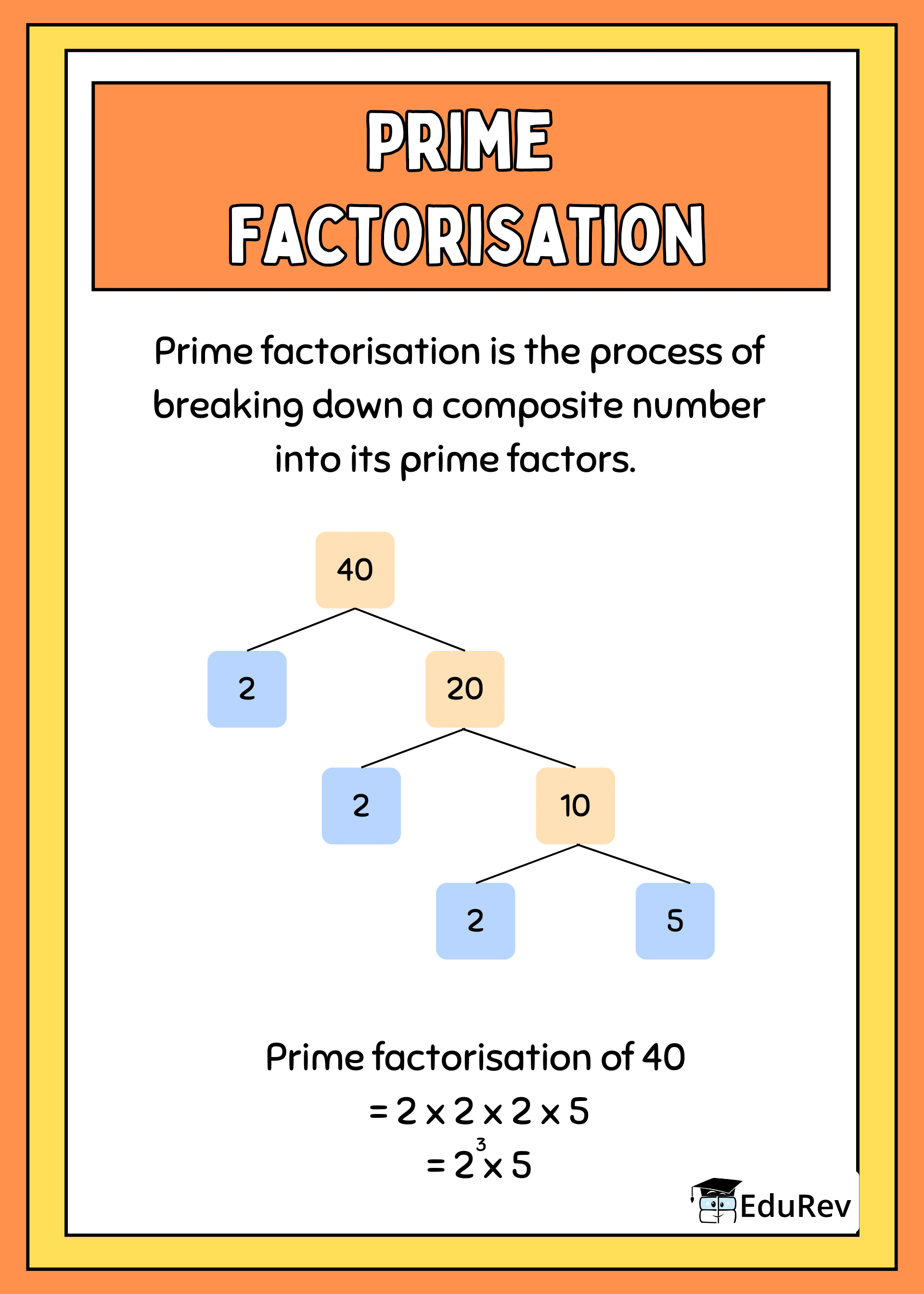Class 6 Exam > Class 6 Notes > Mathematics for Class 6 > Learning Poster: Prime Time
Learning Poster: Prime Time | Mathematics for Class 6 PDF Download

The document Learning Poster: Prime Time | Mathematics for Class 6 is a part of the Class 6 Course Mathematics for Class 6.
All you need of Class 6 at this link: Class 6
|
52 videos|287 docs|23 tests
|
FAQs on Learning Poster: Prime Time - Mathematics for Class 6
| 1. What are prime numbers and why are they important in mathematics? |  |
| 2. How can I identify prime numbers within a range? |  |
Ans. To identify prime numbers within a range, you can use a simple method called the Sieve of Eratosthenes. Start by listing all numbers in the range. Then, cross out all multiples of each prime number starting from 2. The remaining numbers that are not crossed out are the prime numbers. Alternatively, you can check if a number is prime by testing divisibility with all prime numbers up to its square root.
| 3. Are all even numbers non-prime? |  |
Ans. No, not all even numbers are non-prime. In fact, the only even prime number is 2. All other even numbers can be divided by 2, which means they have divisors other than 1 and themselves, and thus are not prime.
| 4. What is the difference between prime and composite numbers? |  |
Ans. Prime numbers are numbers greater than 1 that have exactly two distinct positive divisors: 1 and the number itself. Composite numbers, on the other hand, are numbers that have more than two divisors. For example, the number 6 is composite because it can be divided by 1, 2, 3, and 6, while 5 is prime because its only divisors are 1 and 5.
| 5. Can negative numbers be prime? |  |
Ans. No, negative numbers cannot be prime. By definition, prime numbers are positive integers greater than 1. Since prime numbers must be greater than 1 and have only two positive divisors, negative numbers do not fit into this category.
Related Searches















